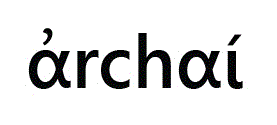Abstract:
In Sophocles’ Ajax, a recurring conflict between two axiological systems gets thematized: the archaic, in which agonal values and personal excellence predominate, and the enlightened, which corresponds to the demands of already-developed cities (poleis) and their values of equality and communal deliberation. This conflict is developed from a topic typical of the practical ideology of the time: the problem of measure and excess (metron/hybris). The present work will account for the peculiar Sophoclean treatment of this problem through the analysis of the lexicon in different passages of the work. As will be seen, characters as antagonistic as Ajax, Menelaus, and Agamemnon nonetheless concord in word choice when substantiating their decisions regarding how to act in situations of conflict. These words define common concepts typical of the archaic heroic code. On the contrary, other characters such as Tecmesa, the sailors’ choir, Odysseus himself, and Athena take different perspectives that are linked to enlightened demands.
Key words:
Measurement; excess; agonal ethic; enlightened ethic.
